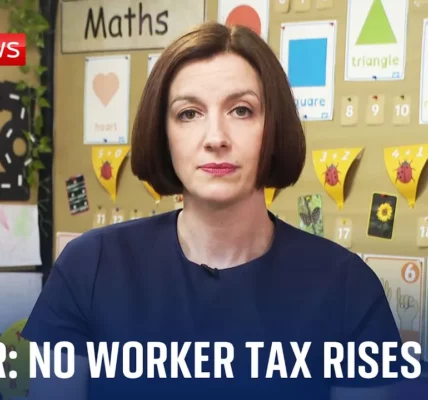Historic Election Results: A New Era for the Labour Party

Welcome to an in-depth analysis of the monumental election results that have reshaped the UK political landscape. Join us as we dissect the implications of Labour’s historic victory and the Conservative Party’s unprecedented defeat.
Introduction
In the early hours of election morning, the political climate in the UK underwent a dramatic transformation. With Labour winning a majority reminiscent of Tony Blair’s iconic victories in 1997 and 2001, the results have sent shockwaves through the Conservative Party, which finds itself in disarray. This article explores the key highlights of this historic election and the underlying factors that contributed to these unprecedented outcomes.
The Labour Party’s Resounding Victory
Labour’s triumph marks a significant shift in the UK political landscape. Keir Starmer’s leadership has led the party to a commanding position, with a majority of approximately 170 seats. This section delves into the factors that contributed to Labour’s success.
Key Factors Behind Labour’s Victory
- Strategic Campaigning: Labour’s campaign focused on appealing to a broad spectrum of voters, particularly those disillusioned by the Conservative Party.
- Voter Sentiment: A desire for change and a backlash against the incumbent government played crucial roles in Labour’s success.
- Electoral System Quirks: The UK electoral system allowed Labour to secure a higher percentage of seats despite a marginal increase in the share of the vote.
The Conservative Party’s Downfall
The Conservative Party experienced a historic collapse, with record losses in both seats and voter share. This section examines the reasons behind this dramatic downfall.
Conservative Party’s Historic Losses
- Loss of Core Support: The party witnessed a significant drop in support from traditional voters, leading to losses in key constituencies.
- Leadership Failures: Rishi Sunak’s leadership has been criticized, with many labeling him as the worst Tory leader in history based on electoral performance.
- Emergence of Reform UK: The rise of Reform UK and their ability to attract disillusioned Conservative voters has further exacerbated the party’s losses.
Shifting Political Landscape
The results of this election have not only affected Labour and the Conservatives but have also reshaped the broader political landscape in the UK.
Impact on Other Parties
- Liberal Democrats: The party made significant gains, positioning itself as a major third party in Parliament once again.
- Scottish National Party (SNP): The SNP faced a severe decline, losing its dominance in Scotland while Labour made substantial gains.
- Significance of Pro-Palestinian Candidates: An increase in pro-Palestinian candidates reflects changing voter priorities and highlights the complexity of the election results.
Looking Ahead: The Future of UK Politics
With Keir Starmer set to become the Prime Minister, the future of UK politics will be shaped by his leadership and the challenges facing the Conservative Party.
The Challenges for Keir Starmer
- Delivering on Promises: Starmer will need to fulfill the public’s expectations for change and address pressing issues.
- Maintaining Party Unity: Balancing various factions within the Labour Party will be crucial for long-term stability.
- Engaging with the Public: Building and maintaining public trust will be essential for Starmer’s success as Prime Minister.
Conclusion
The results of this historic election signify a seismic shift in the UK political landscape. With Labour’s dominance and the Conservative Party’s unprecedented losses, the coming years will be pivotal for both parties. As we move forward, it will be essential to monitor how these changes unfold and impact the broader socio-political climate. For further insights and updates on UK politics, be sure to check our related articles and stay informed.
“`




